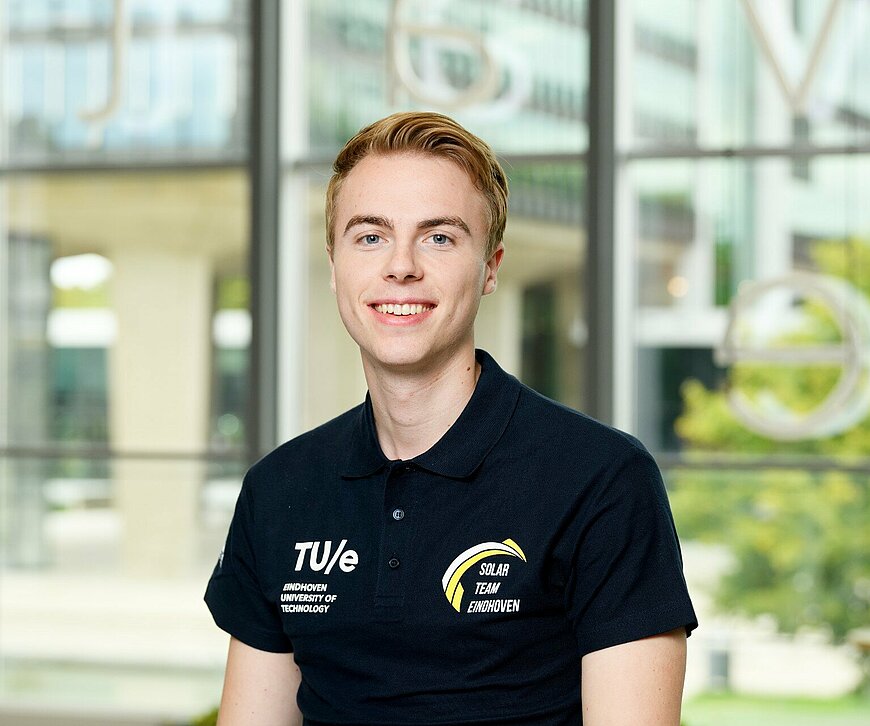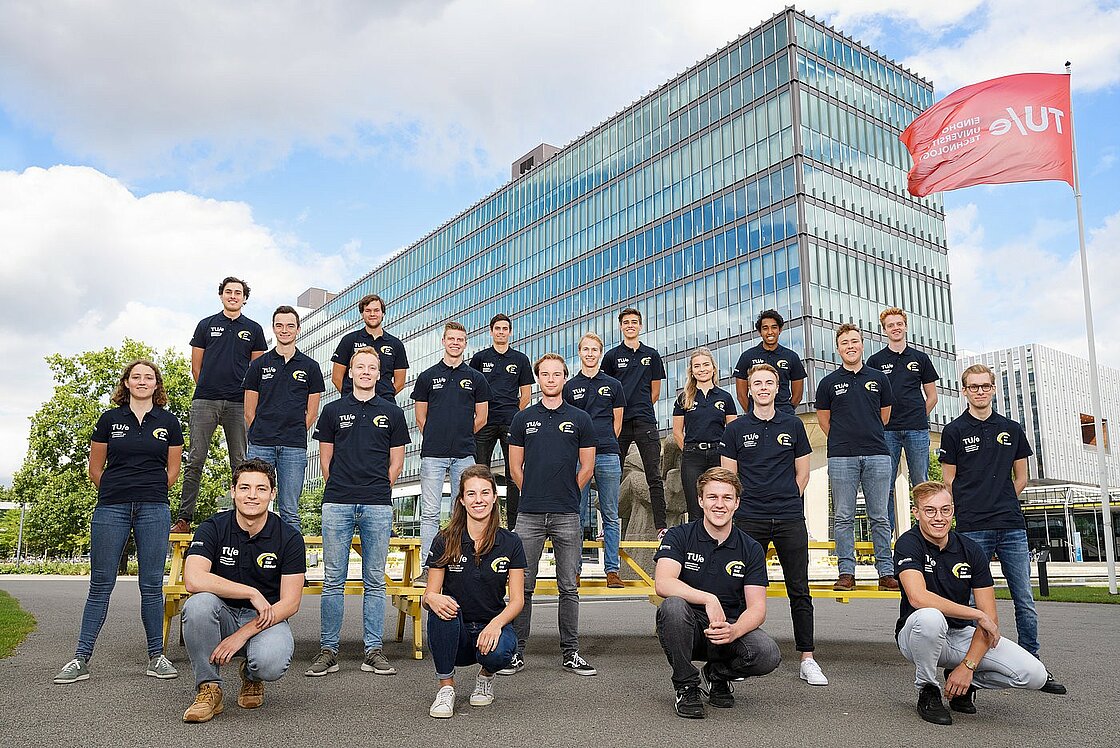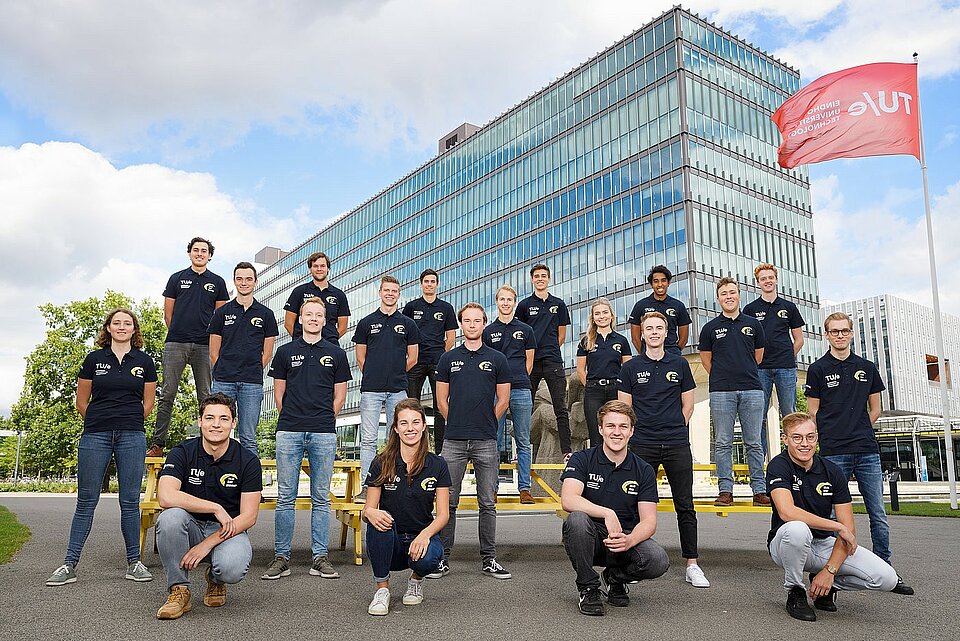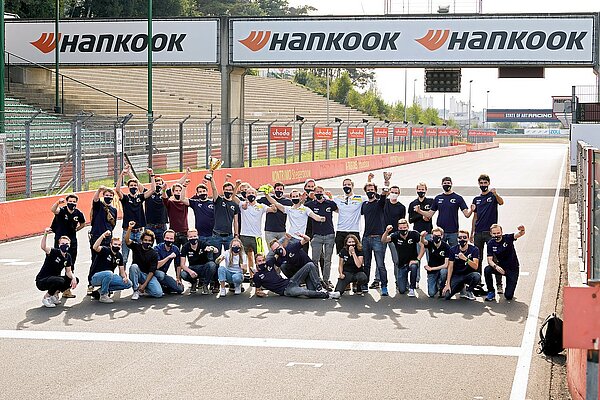Meet our pioneer: Tycho Smokers

In Brainport Eindhoven we change the world because here we develop key technologies that change society. We can only do that because of our pioneers. Therefore, meet one of our pioneers: Tycho Smokers.
Who are you?
My name is Tycho Smokers. I am 22 years old and originally from Pijnacker, near Delft. Since my studies, I live in Eindhoven.
What do you study?
I completed my bachelor Automotive in 2020.
Why did you choose this study?
I have been fascinated by cars and technology since my childhood. I wanted to do something with technology but applied. So Automotive was a perfect fit for me.
Why did you choose TU/e?
Because I lived near Delft, I of course looked at the University of Delft. But I doubted for a long time which study I wanted to do. My parents also both studied at the TU/e and when I came here, I came across the Automotive study and I was immediately sold. TU/e is the only university in the Netherlands that offers this study.
Are you going to do a master's after this?
In any case, I want to do the master's in Automotive at TU/e. That fits in nicely with my bachelor's degree and it is of course the most interesting field of study there is at the uni. I'm still not sure whether I want to do anything with the subject of sustainability somewhere. There are studies for it, but they're not really up my alley. It is mainly a lot of reading and a lot of writing and I am more technical than that. So I'm still trying to figure out how I'm going to implement it.
Which student team are you in?
I have been a full-time System Architect Electrical Engineering & Auxiliary Systems Engineer at Solar Team Eindhoven since September 2020.


So what exactly do you do?
It is a shared function. I am an electrical system architect. That means that I’m responsible for ensuring that all the pieces of the electronics puzzle fit together. So that was also my role in designing the system. I kept an overview of what we needed and what kind of electronics had to be in the vehicle. I am also responsible for the integration of the electronics in the vehicle. So I have to make sure that everything gets a proper place and is neatly connected.
My side job is Auxiliary Systems Engineer and that means that I also have design tasks for small electronics parts. This includes mandatory RDW components, such as lighting.
Why do you work in this team?
Since the beginning of my studies, I knew that I wanted to do something on the side, but I didn't know what yet. But at Automotive almost everyone is part of a student team. Many student teams do something with cars. Of course, I wanted to develop myself, but also put my knowledge into practice and bring knowledge together. So this seemed like a great opportunity to me. The reason I chose Solar Team Eindhoven is that sustainability is very important to me. As a result, the two race teams already dropped out. Then I had the choice between Solar Team and TU/ecomotive. I wanted to do a full-time gap year but in a technical position. At TU/ecomotive you can only sit on the board full-time, so I chose Solar Team. They also only work with people who are available full-time. So the choice was quickly made.
"I wanted to develop myself, of course, but also to put my knowledge into practice and bring knowledge together."

Do you do more besides your studies?
I have also been a student assistant. For the Future of Mobility learning line. My father also works in that field and he gave a guest lecture at the university once. That's how I got to talking to the professor and he asked me to be a student assistant. I set up a new course in that learning line together with him. I also thought about the practical side for students and how you can best approach this. That was a very nice experience. I learned a lot about sustainability and mobility myself. Ultimately, this was even rolled out in an entire master class on all aspects of sustainable mobility. We also wrote a piece about the future of mobility together.
It's very fun and educational. It helps you to boost your expertise. But I also really enjoy teaching people things, explaining things to them and helping them. I also find it an important skill to be able to explain something complicated simple. You also learn a lot from that yourself.
"I also enjoy teaching people, explaining things to them and helping them. I also think it is an important skill to be able to explain something complicated in a simple way. You learn a lot from that yourself."
Why do you think it’s important to be able to explain complex matter?
Among other things, I think it's important that others have a little bit of understanding of how the world works. Sometimes it's just hard to understand very complicated things right away. Especially in sustainability, you do not always see the connection between cause and effect. So if you can explain that in a good way, people will understand it better and they may be able to make better choices. I think that's important.
What will you do it later?
Some people in my family have done a PhD after their master's, so of course, I also thought about that. It seems interesting to me, but for me, it depends on whether there is nice research. I'm not a die-hard researcher. I like putting things into practice. So if there is no nice research available, there is also the option to do a PDeng. That’s a bit more practical. So I'm a bit sceptical about that too. I would like to do some extra work after my studies, but if that is not possible, I will just go to work.
Why are you considering a PDeng?
Just a bit of real engineering. So immediately design something that is also made and which you can also apply in a vehicle, for example. In the end, I think that's more beautiful than abstract research.
What would you like to do for work?
What seems very cool to me is to do a bit of the same at a car company as I do now: help design a car. I always find a system function slightly more interesting than an engineering function that focuses on something specific.
There are not that many car companies in the Netherlands, but I would like to stay in Brainport Eindhoven. I don't really like living abroad and you will find so much innovation in this region.
What do you find important about a later job?
Constant challenge and innovation are very important to me. I like to do more than just paperwork. I want to market something. But I also think it's important to contribute something useful to society. I would like to help make a sustainable future possible.
"I also think it is important to contribute something useful to society. I would like to help make a sustainable future possible."
What do you think about studying and living in Brainport Eindhoven?
I like it, although it took some getting used to at first. Eindhoven is not a huge student city. Not even compared to Delft. But I find the people in this region very sympathetic and very down-to-earth. I like that. Just like the ambience in the city. Here you will find the Brabant cosiness. What I also like to see is that the companies are so involved at the university. You can see that they contribute a lot, for example in the form of guest lectures. With the Solar Team, we also work a lot with companies and when I drive through Brainport, I see so many well-known company names. That makes me proud.
What would you like to tell (future) students in Brainport Eindhoven?
Technology is fun. If you like it, you should do something with it. It's important in this world. But don't lose sight of the rest of the world. Do not only focus purely on technology but also place it in society.
"Don't just focus purely on technology, but place that in society as well."
And also join a student team. You feel like you learn almost as much in one year as you do during your entire study. Just for practical knowledge. But you also develop your skills. So it’s a very instructive time.